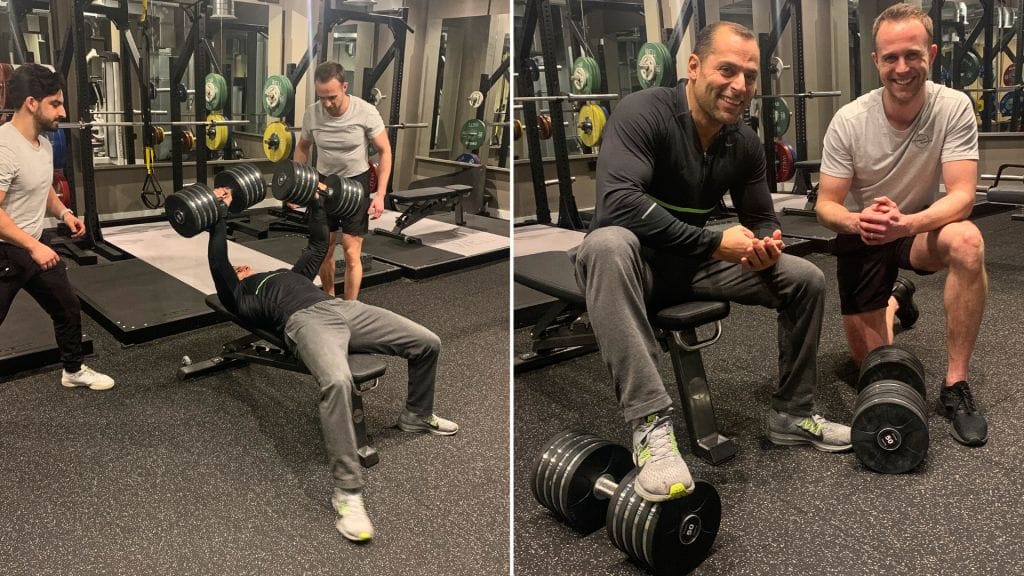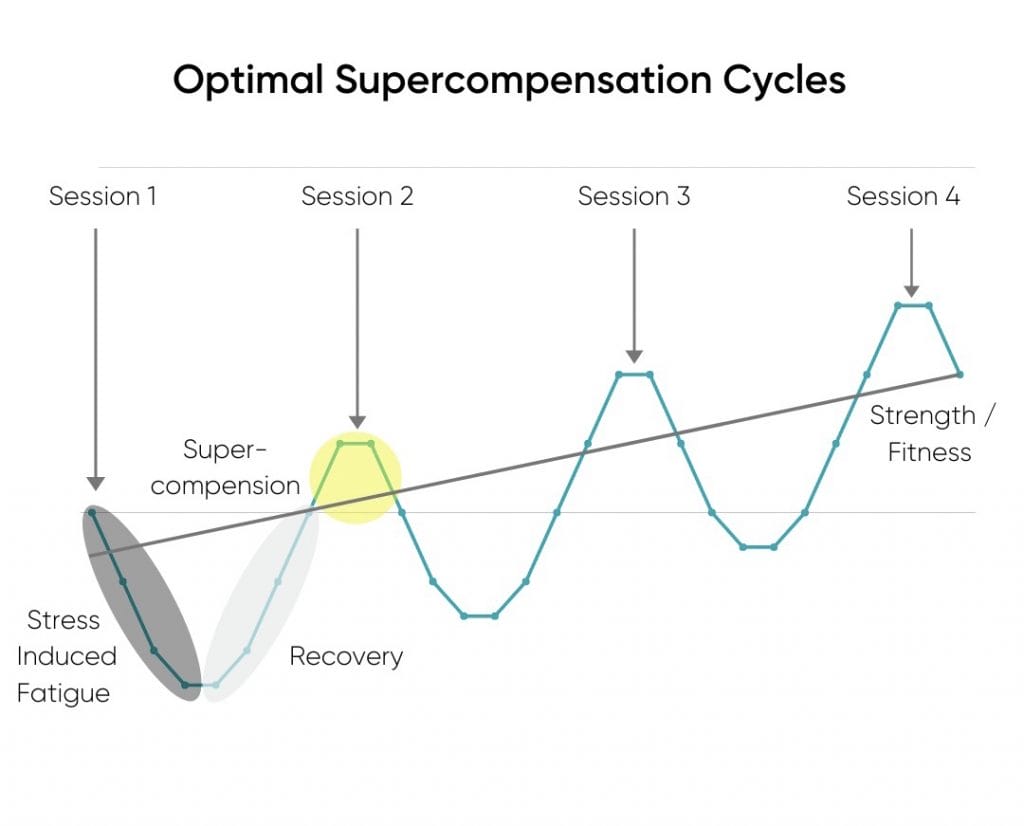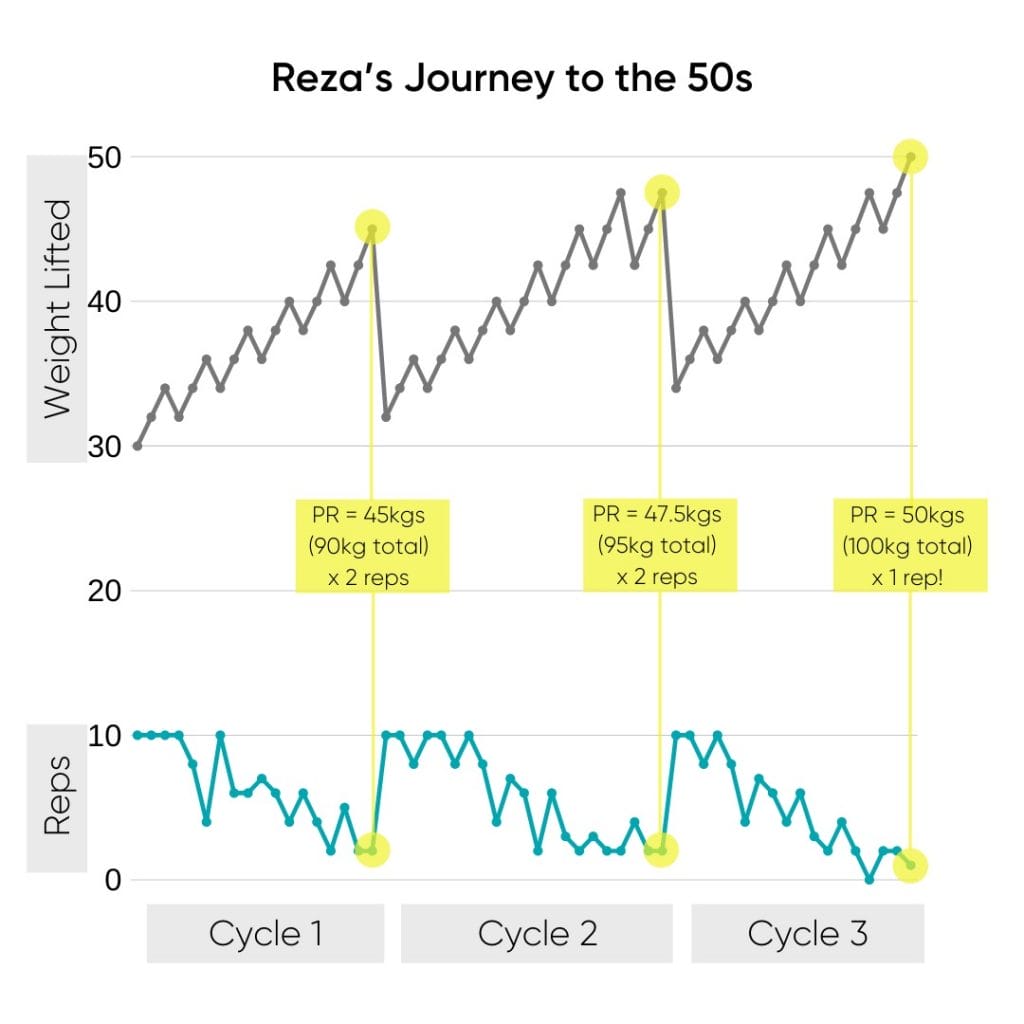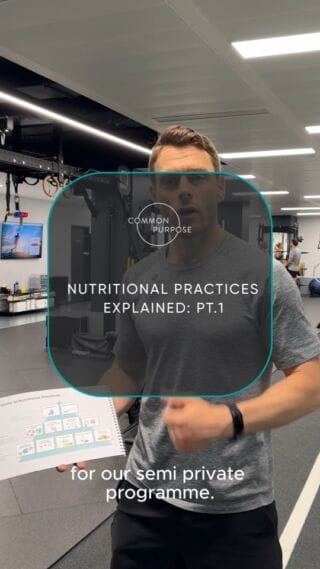“Novice gains” occur when beginners make great improvements in strength or fitness. Unfortunately, this doesn’t continue linearly and will eventually slow down the fitter you get. As you progress along your training journey, you may need to prioritise specific areas of improvement, whilst maintaining what you’ve gained. The more advanced lifter, for example, will have to work harder for smaller gains and their training program will need to be more strategic and meticulous.
Back to Reza’s Story…
With this in mind, we chose to employ a “3 steps forward, 1 step back” when it came to his DB bench press. We gradually increased training volume, focusing on intensity (weight lifted), as the key progress indicator. We started higher reps (8-10) at a moderate weight, we then increased the weight, whilst decreasing the reps (1-3) on a session by session basis. The number of sets stayed the same.
Reza’s performance was recorded and charted meticulously. As soon as he missed a lift (indicating an approximate 1RM), we would then go back to the beginning of the cycle and repeat the process; with the idea that Reza would outperform his previous records.
Even after the first cycle, we were super impressed with Reza’s performance! Just some planned programming can do wonders to progress. His progress was rapid but what was most impressive was his focus, consistency and motivation! Interestingly, alongside his strength training, Reza adopted intermittent fasting and would only eat around his training session. Increasing strength and losing weight requires some serious dedication!
Here’s a graphic representation of Reza’s journey to the 50’s:
 Common Purpose Team
Common Purpose Team






